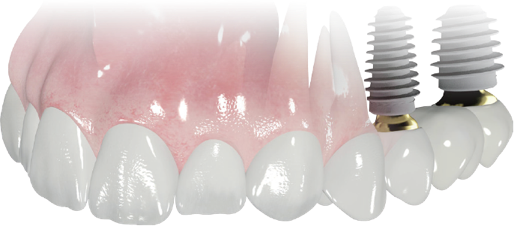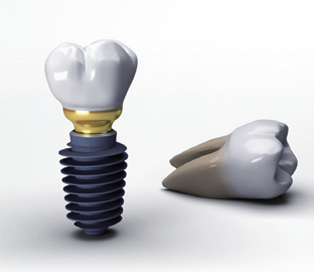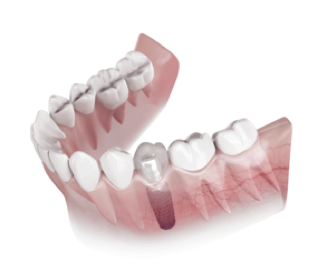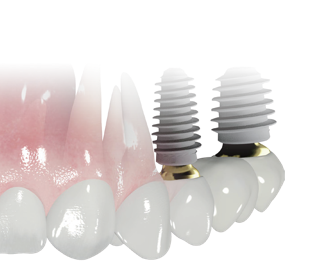Here are some answers to questions you may have about dental implant treatment…
You should also discuss any concerns with your own clinician…
Here are some answers to questions you may have about dental implant treatment…
You should also discuss any concerns with your own clinician…
Anyone with mature teeth can get an implant, regardless of age. However, the procedure can take longer in the following cases:
• younger than 18 years old
• severe gum disease
• high blood pressure
• diabetes
• serious illness, such as cancer
• serious osteoporosis
Local anesthesia is normally used to eliminate the pain of implant surgery. Plus, pain medication is usually prescribed to alleviate any post-operative swelling of the gums. This type of pain management is effective and sufficient for most patients.
An implant can last for many years with proper care and regular check ups. Although implants are not susceptible to cavities, maintaining good oral hygiene is important to avoid inflammation around the gums.
Implants can be used for bridge treatments. For example, 2 implants can be used to restore 4 teeth. However, it is important to consult with your clinician to determine the best treatment option according to the condition of your teeth and gums.
This completely depends on the condition of your bone, gums and general health. For the lower jaw, it can take at least three months, while for the upper jaw, it can take more than four months. If bone grafting is required due to periodontal disease or loss of teeth, the treatment period may be slightly longer.
Patients who have suffered a heart attack or are receiving kidney dialysis should consult with their clinician before considering implant surgery.
With proper care and regular check-ups, implants can be used for long time, similar to healthy natural teeth.

Brush your teeth carefully and use dental floss and a proxabrush to keep the space between your teeth clean.
The carbon monoxide component in tobacco affects the blood flow of the gums and bones.
As a result, smoking increases the implant failure rate by 10 times.
Unlike natural teeth, implant teeth have no nerves, so if they are inflamed, there may be no pain.
Therefore, regular check-ups are important for long-term maintenance.
After 1 week
After 1 month
After 3 months
After 6 months


